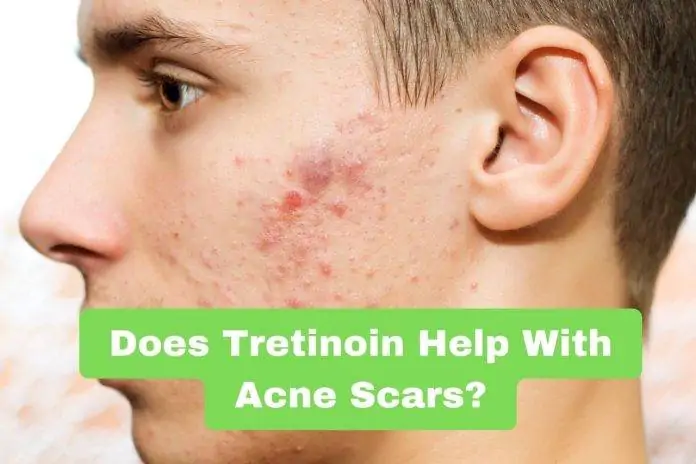Does Tretinoin help with Acne Scars? Tretinoin, the drug used for acne, is said to help with the scars left by the acne breakouts. However, it can cause serious side effects. In this article, we will talk about how to use tretinoin properly, as well as the dangers of overdosing. We will also talk about how to treat acne scars, and how to avoid other drugs while using tretinoin.
Preparing for a tretinoin purge
Tretinoin is a prescription drug used to treat skin problems like wrinkles, fine lines, acne, and saggy skin. It works by boosting collagen production and dissolving unwanted pigmentation. If used properly, it can even reduce the risk of skin cancer.
However, tretinoin also has some negative side effects. It can make your skin flaky, irritated, and red. To avoid these, stick to a healthy skin care regimen. And if you’re feeling overwhelmed, it might be time to ask your dermatologist for advice.
Some of the side effects of tretinoin are temporary. In fact, some people report having no effects at all. But there’s no reason to stop using the drug. You’ll just need to keep your skin clean and moisturized in the meantime.
In addition to preparing for a tretinoin purge, you should learn a few of the best practices for taking care of your skin. For example, you should avoid overusing retinol, since overdosing can lead to irritation and dryness. Instead, gradually add it into your nighttime skin care routine. This way, your skin will have a chance to adjust.
Treating acne scars
Tretinoin is a vitamin A derivative that can be used to treat acne scars. It works by sloughing off dead skin cells and increasing the rate at which new cells are replaced. In doing so, it helps smooth the skin and avoids comedones.
Acne is a skin condition that affects millions of people in the United States every year. Although it can be frustrating to deal with, there are many ways to treat it. The best way to find the right treatment for you is to see a dermatologist.
You should ask your doctor about any of the different topical treatments available. Many doctors recommend tretinoin for treating acne scars. If you decide to try it, it will take several weeks for the product to work.
If you’re unsure about tretinoin, you may want to consider using retinol instead. This drug works by increasing the glycosaminoglycan in the skin, which is an essential substance for keeping the skin firm and hydrated.
Avoiding other acne drugs while using tretinoin
When you’re dealing with acne, it’s important to find a treatment that works for you. One of the most effective treatments is tretinoin. This medication helps your skin to heal by unclogging clogged hair follicles and pores. It can also help prevent breakouts. However, tretinoin isn’t without its drawbacks. Some people may experience irritation or even more pimples than usual.
Those who are taking tretinoin should take extra care when they’re exposed to the sun. They should use sunscreen with an SPF of at least 15. Using sunscreen can help protect your skin from harmful UV rays, which may cause tretinoin to work less effectively.
Tretinoin is a vitamin A derivative that works by stimulating cell turnover in the skin. The faster cell turnover leads to an open pore and the release of trapped bacteria. These bacteria cause inflammation. If the acne lesion is deep inside the skin, the bacteria can lead to cystic or nodular acne.
Overdoses of tretinoin
Tretinoin is a medication that can help reduce fine facial wrinkles, acne, and age spots. However, it can cause serious adverse reactions in nursing infants. It may also increase the risk of premature births.
Tretinoin is not recommended for women who are trying to become pregnant or who are already pregnant. It is also not recommended for breastfeeding mothers. If you are going to be using tretinoin, you must use an acceptable form of birth control for one month after the treatment stops.
If you are using tretinoin to treat acne, you must use an SPF-15 sunscreen to protect your skin from the sun. Also, tretinoin may make your skin more sensitive to the sun. For this reason, you should avoid exposure to the sun during the first few weeks of treatment.
A tretinoin overdose is a rare occurrence. It is usually caused by applying the cream too much. While the symptoms of an overdose aren’t dangerous, you should seek medical attention immediately.




